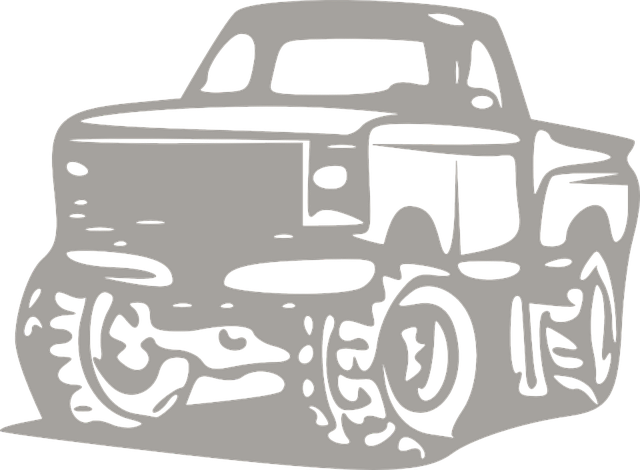Tow hooks are crucial hardware for RV 4×4 repairs, offering robust connection points for towing equipment in off-road or emergency situations. They enable safe movement over challenging terrains, aiding RV owners navigating rugged landscapes. Types vary based on needs: standard for light-duty towing, recovery hooks for heavy loads, and specialized off-road hooks for enhanced durability. When choosing a tow hook, match it to your RV's make and model, considering weight capacity, hitch compatibility, and needed accessories. Ensure secure mounting and regular maintenance for safety and longevity after repairs or off-road adventures. Troubleshoot common issues like corrosion or physical damage, consult the owner manual, and seek professional help when needed.
Need to know all about tow hooks for your RV 4×4 repair? This article covers everything from understanding their vital role in enhancing safety and capability, exploring different types, selecting the right one, installation tips, maintenance guidelines, troubleshooting common issues, and more. Learn how to ensure longevity and reliability during RV 4×4 repairs with this comprehensive guide.
- What are Tow Hooks and Why are They Important for RV 4×4 Repair?
- Types of Tow Hooks: An Overview
- Selecting the Right Tow Hook for Your RV 4×4
- Installation Process: A Step-by-Step Guide to RV 4×4 Repair
- Maintenance Tips for Longevity and Safety
- Troubleshooting Common Issues with Tow Hooks in RV 4×4 Repair
What are Tow Hooks and Why are They Important for RV 4×4 Repair?

Tow hooks are specialized hardware designed for securing and towing vehicles, particularly in off-road or emergency situations. They play a crucial role in RV 4×4 repair by providing a robust connection point for towing equipment, enabling safe and controlled movement when facing challenging terrains or unexpected breakdowns. These hooks are essential accessories for any RV owner navigating rugged landscapes, ensuring the vehicle can be towed with precision and safety.
Types of Tow Hooks: An Overview

Tow hooks come in various types designed for different purposes and vehicle setups. When considering an rgv-4×4-repair, understanding these categories is key.
One common type is the standard tow hook, typically used for light-duty towing. These are usually bolt-on or welded to the vehicle’s frame and offer a secure attachment point for trailers or other equipment. For heavier-duty applications, there are recovery hooks designed to handle extreme weight and stress during rescue operations. These often feature robust construction and additional safety mechanisms like quick-release features. Specialised tow hooks tailored for off-road vehicles are also available, offering enhanced durability and resistance to extreme conditions, ideal for challenging 4×4 terrain.
Selecting the Right Tow Hook for Your RV 4×4

When selecting a tow hook for your RV 4×4, consider the vehicle’s make and model. Different vehicles have unique towing capabilities and requirements, so choosing the right hook is essential for safe and effective towing. Check your RV’s owner manual for specific recommendations and specifications.
Factors to keep in mind include the weight capacity of the tow hook, its compatibility with your vehicle’s hitch system, and any additional features or accessories you may need. Ensure that the tow hook is securely mounted and can withstand the stresses of off-road towing. By making an informed choice, you’ll enhance your RV 4×4’s capabilities during repairs, ensuring a smoother and safer towing experience.
Installation Process: A Step-by-Step Guide to RV 4×4 Repair

To perform an RV 4×4 repair, follow these clear and concise steps:
1. Safety First: Ensure your vehicle is parked on a level surface with parking brakes engaged for safety during the installation process. Gather all necessary tools and components, double-checking their compatibility with your RV model. Put on protective gear, including gloves and safety glasses.
2. Remove the Old Tow Hooks: Carefully remove the existing tow hooks by unbolting them from the vehicle’s frame using a wrench or socket set. Clean the mounting areas to ensure a secure bond with new hooks.
3. Install New Tow Hooks: Align the new tow hooks with the pre-drilled holes on your RV’s frame. Secure them firmly in place using the supplied bolts and torque specifications from your vehicle’s manual for optimal performance during towing.
4. Test and Verify: After installation, thoroughly inspect the tow hooks to ensure they are securely fastened and properly aligned. Test the towing capabilities of your RV with the new hooks to guarantee they meet safety standards.
Maintenance Tips for Longevity and Safety

Regular maintenance is crucial for ensuring the longevity and safety of your tow hooks, especially when subjected to rugged 4×4 repairs (RGV-4×4-repair) and challenging terrains. Keep an eye out for any signs of wear or damage, as these could indicate a need for replacement. Inspect the hooks periodically for rust, corrosion, or any loose connections, addressing these issues promptly to prevent further deterioration.
Proper storage is another vital aspect. When not in use, store your tow hooks in a clean, dry place, away from direct sunlight and extreme temperatures. Consider using protective coatings or covers to safeguard them from environmental elements. Additionally, regular cleaning can help maintain their integrity, removing any dirt, debris, or road grime that might accumulate over time.
Troubleshooting Common Issues with Tow Hooks in RV 4×4 Repair

When troubleshooting issues with tow hooks in RV 4×4 repair, it’s crucial to start by checking for common problems like corroded or loose connections. Inspect the tow hook assembly for any signs of damage, rust, or misalignment, as these can impede proper functionality and safety.
If the tow hooks are difficult to engage or disengage, there might be an issue with the mechanical linkage or electrical system. Verify that all cables, wires, and sensors are properly connected and free from wear or tear. Consult the RV’s owner manual for specific troubleshooting guides, and don’t hesitate to seek professional assistance if the problem persists, focusing on efficient rgv-4×4-repair solutions.
Understanding the importance of tow hooks in RV 4×4 repair is key to ensuring safety and longevity. By selecting the right hook, correctly installing and maintaining it, and troubleshooting any issues promptly, you can significantly enhance your off-road experience. Remember that a well-maintained tow hook is a vital component in navigating challenging terrains and can make all the difference in your RV 4×4 repair process.



